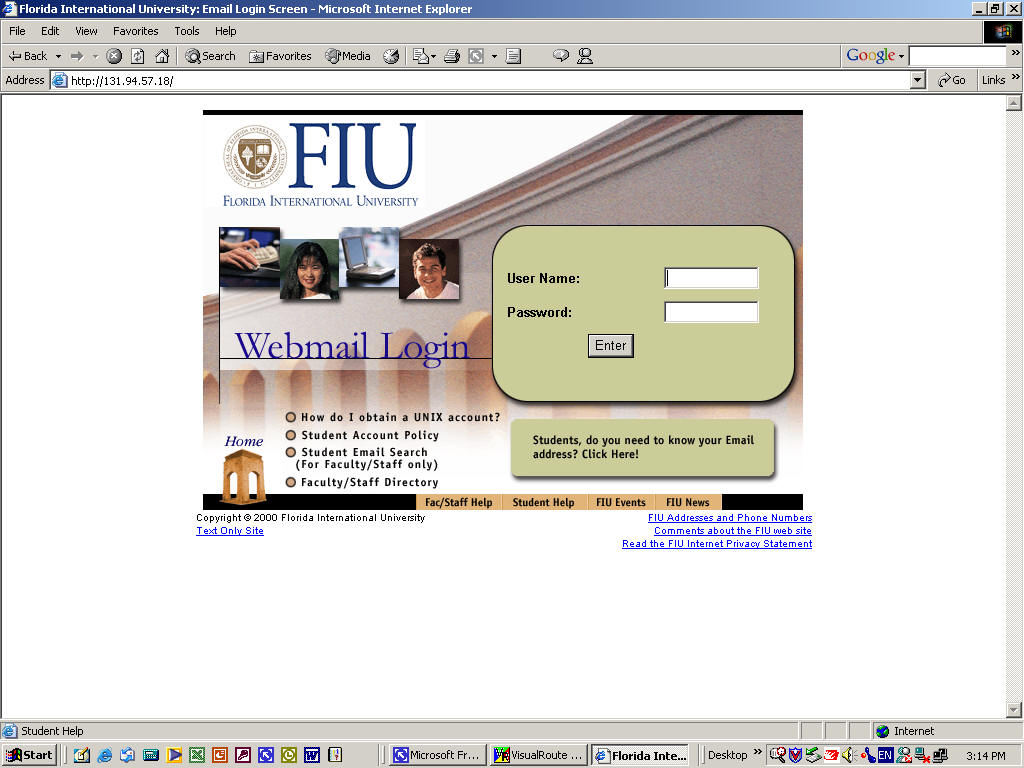
|
Exercises in Information Technology |
|
Exercise 002 |
When we need a telephone number, we go to the telephone directory and look it up, as long as we know the subscriber's name.
When we request a web page, for example webmail.fiu.edu, the computer goes to a directory and looks up the number.
The number it looks up is called an i.p. address and the directory it uses is called DNS ( domain name service).
Here is an example of how it works.
When you request a web page you type in www.webmail.fiu.edu in your browser.
Because computers understand and react faster to numbers, this web page has an i.p. address which consists of 4 sets of numbers.
In this particular case www.webmail.fiu.edu has an ip address of 131.94.57.18
Once you type in the www.webmail.fiu.edu into your browser, your browser sends a message to the DNS server to look up the ip address of the web page. It looks it up rather like you like up a name in the telephone directory. It replies back with the number and then your browser requests the web page by the ip number.
So theoretically, if you knew the ip address of FIU you could type this in and get to the web page faster as it would cut out the looking up part.
Try it.
Open your Browser and type in 131.94.57.18instead of www.webmail.fiu.edu

Did you notice a difference?
Now try the following ip addresses and see where they lead